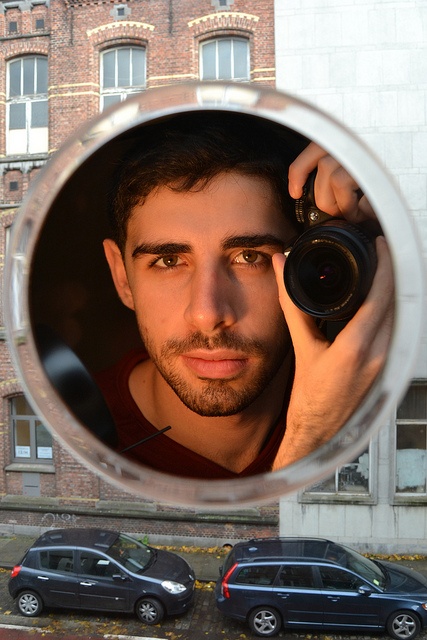Yesterday morning, a major Italian daily newspaper, which is supposed to be a quality paper, published a selfie of the ex Pope Benedict XVI. It was taken by some visiting priest, no doubt. When I saw this, I knew it was time for me to leave the planet, but before I do, I must write this post on why selfies do more harm than good. At least, I will have achieved something during my earthly life. Let us get the good out of the way. Good? Well, it shows that you can manage a smartphone or web camera. Then it gets you more likes and comments on your social network account. Finally, it shows everyone what you look like and no, it’s not really narcissism. Just blame it on Narcissus, ok? He started the whole trend a long time ago and he didn’t even have a smartphone.
But surely posting selfies is a perfectly innocent and worthwhile activity? Why not post a selfie of yourself, you and your friend, and you and your cat on Instagram? Well, if it is taken to excess, then it really is doing a lot of harm, just like smoking too many cigarettes or becoming an alcoholic or a workaholic. Here are 5 top reasons why it could get out of hand.
1. Selfies create privacy risks.
Facebook is using face recognition technology (DeepFace Project) already and some experts argue that this is illegal. It is alarming to think that Facebook processes 350 million photos every day. That is providing invaluable information for commercial and other types of exploitation. But law enforcement agencies such as the FBI may have access to all this data for identifying criminals and terrorists. But the new “faceprint” may soon be in use for ATMs and other useful purposes such as unlocking your iPhone and even paying by credit card.
The NSA have not been lagging behind either. Astonishingly, they can match satellite photos with any photos taken outside to identify the exact spot where that photo was taken. What about photographs taken indoors? Now, that is scary! Basically, the message is that anything you do or download on your computer leaves a digital trail.
2. Selfies can cause an addiction.
Trying to get that perfect selfie for your Instagram account? Don’t try too hard because it can get addictive and you may become obsessed. An extreme example is the story of Danny Bowman who ended up trying to commit suicide. The reason for his desperation? He just could not get that perfect selfie after trying for 10 hours a day. The average was about 200 selfies a day. His mother saved his life and he is now doing some rehabilitation. He is gradually learning to live without his iPhone.
3. Selfies can damage real relationships.
Did you know that your real friends can end up disliking you when you post too many selfies? It can damage friendships and relationships. This was the startling conclusion reached by researchers at Heriot-Watt University, Edinburgh. They found that it negatively impacts levels of intimacy.
4. Posting too many selfies is not a disorder yet.
Have you heard about the prank which some people played on the American Psychiatric Association? The pranksters posted a bulletin claiming than the new disorder was called “selfitis.” There were three stages in the disease which ranged from borderline (about 3 selfies a day) to chronic “selfitis” where you take photos of yourself all day and then post them at least six times a day. This went viral and people were getting worried. Once the dust settled, the joke was revealed. Well, it is not a disorder yet, but watch this space! The story of Danny Bowman is a little scary, quite honestly.
5. Selfies place too much emphasis on physical appearance.
Wouldn’t it be wonderful if we could post photos of a person’s honesty, tolerance and kindness on Facebook? Not a snowball’s chance in hell. Yes, there is now even the bottom-selfie which is called the belfie. At the moment, everything is so physical and human values are getting shoved to the bottom (pardon the pun!) of the agenda.
But this craze may hide a tendency towards narcissm. In extreme cases, an emotional trauma usually involving a separation or abandonment occurs. The person constructs a sort of shield and his emotional age is blocked from when the traumatic event happened. He becomes totally absorbed with himself and is usually socially and emotionally isolated. Now, just in case you have any doubts, why not take the narcissist quiz here, instead of taking another selfie? Featured photo credit: #selfie/Alexandra Shertzer via flickr.com



